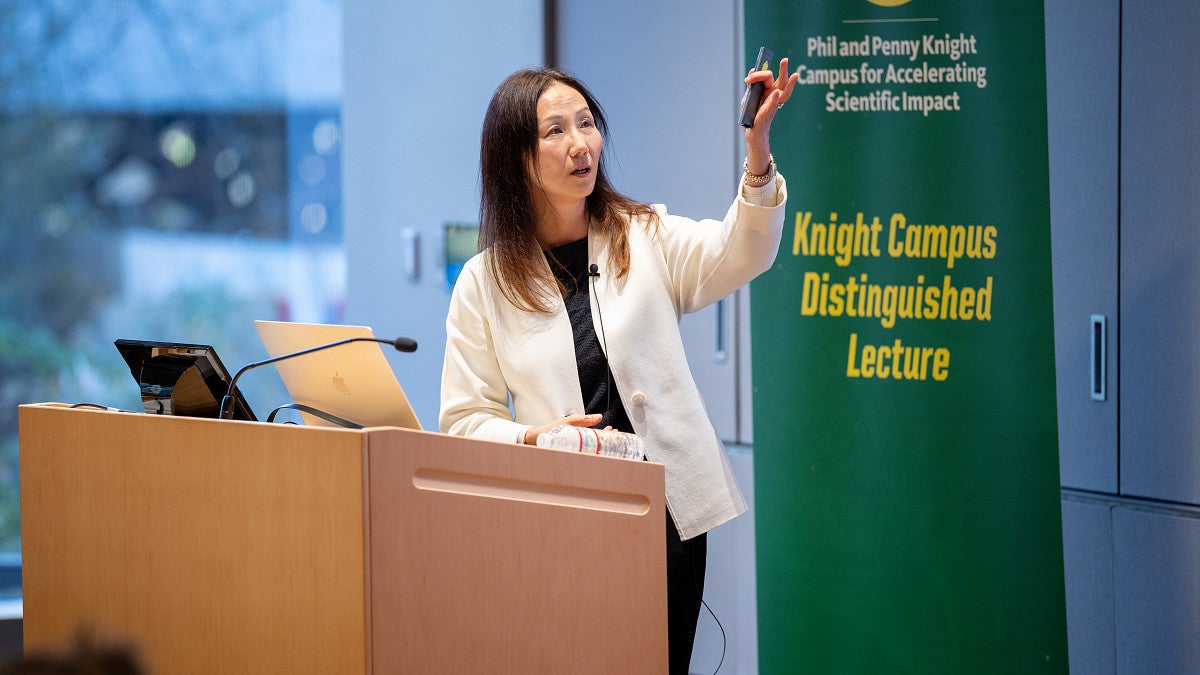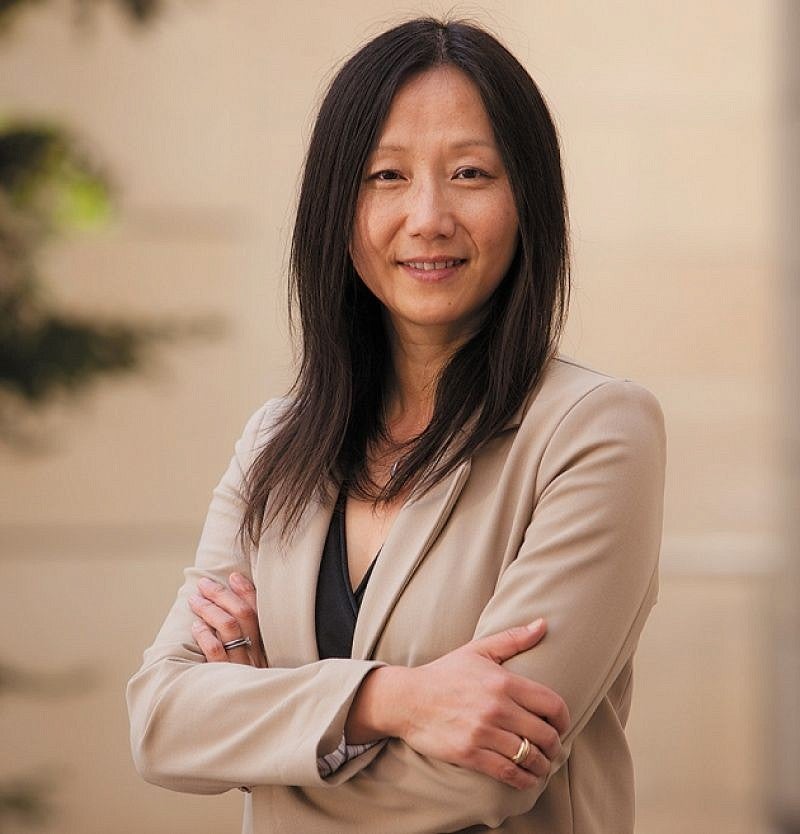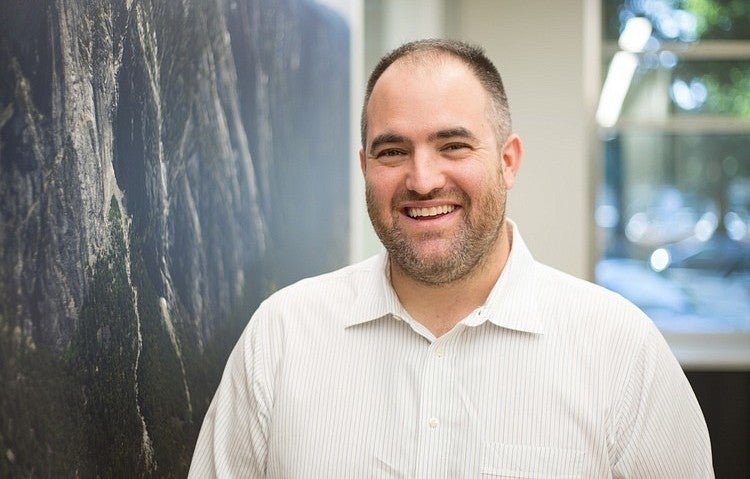Knight Campus Distinguished Lecture Series

An annual event designed to bring nationally and internationally recognized science, technology and engineering leaders to the University of Oregon community to give their perspective on the future of their fields.
Our Most Recent Speaker
“Learning from Skin: from Materials, Sensing Functions to Neuromorphic Engineering”
Knight Campus Distinguished Lecture Series with Zhenan Bao
Thursday, November 20, 2025 (concluded)
Skin—the body’s largest organ—continuously transduces rich sensory information. Building on this inspiration, Zhenan Bao’s lab has developed design strategies to endow organic electronics with skin-like properties and functions, including stretchability, self-healing, biodegradability, and the ability to convert external stimuli into spike-train signals. These advances form the foundation of soft bioelectronics, enabling new possibilities in medical devices, robotics, wearables, and neuromorphic engineering.
Zhenan Bao is the K.K. Lee Professor of Chemical Engineering at Stanford University, with courtesy appointments in Chemistry and Materials Science and Engineering. She directs the Stanford Wearable Electronics Initiative (eWEAR) and is a member of the National Academies of Sciences and Engineering, as well as the American Academy of Arts and Sciences. Recognized internationally for pioneering work in skin-inspired electronics, Bao has published over 700 papers, holds more than 80 patents, and co-founded several venture-backed startups. Her accolades include the VinFuture Prize for Female Innovator and recognition by Nature as one of its “Ten People Who Mattered” in 2015. Learn more about the Bao Group at baogroup.stanford.edu.
Note: This lecture was not recorded.

Previous Speakers
Robert Pinkas Family Professor of Bioengineering; core faculty, Harvard SEAS & the Wyss Institute; member, Knight Campus External Advisory Board
"Engineering of T Cell Cancer Therapies"
In his lecture, David Mooney described how biomaterials can help overcome current limitations in T cell–based cancer therapies by concentrating, interrogating, and manipulating stem and immune cells ex vivo and in vivo. He highlighted therapeutic cancer vaccines and artificial antigen-presenting cells for the manufacturing and in-vivo boosting of adaptive T cell responses.
Sanjiv Sam Gambhir Professor of Translational Medicine, Professor of Chemical Engineering and, by courtesy of Chemistry of Materials Science and Engineering, and of Operations, Information and Technology at the Graduate School of Business, Stanford University
"The Delicate Interplay Between Light, Interfaces and Design: 3D Printing of Next Generation Controlled Release Systems"
Joseph M. DeSimone discusses Continuous Liquid Interface Production (CLIP) technology, which embodies a convergence of advances in software, hardware, and materials to bring the digital revolution to polymer additive manufacturing..
Assistant Director for Engineering, National Science Foundation (NSF)
"Transforming our World for a Better Tomorrow"
Susan Margulies discusses priorities and opportunities for engineering research and education.
W.T. Doherty-Welch Chair in Chemistry and Distinguished Professor, Texas A&M University
"Synthetic Strategies to Afford Natural Product-Based Polymer Materials: Impacts on Sustainability, Life, Health and the Environment"
Karen Wooley discusses how natural polymer materials can impact sustainability, human health, and the environment.
Director, Knight Cancer Institute
"Imatinib as a Paradigm of Targeted Cancer Therapies"
Brian Druker discussed how he spearheaded the highly successful clinical trials of imatinib for chronic myeloid leukemia, which led to FDA approval of the drug in record time.
CEO and Co-Founder, Chronicle
"Innovation, Leadership, and Change"
Stephen Gillett discussed leadership, transformation, and change and how these elements shaped him into a leader that skirts the norm, strives for innovation, and views change as an opportunity, not a roadblock.

